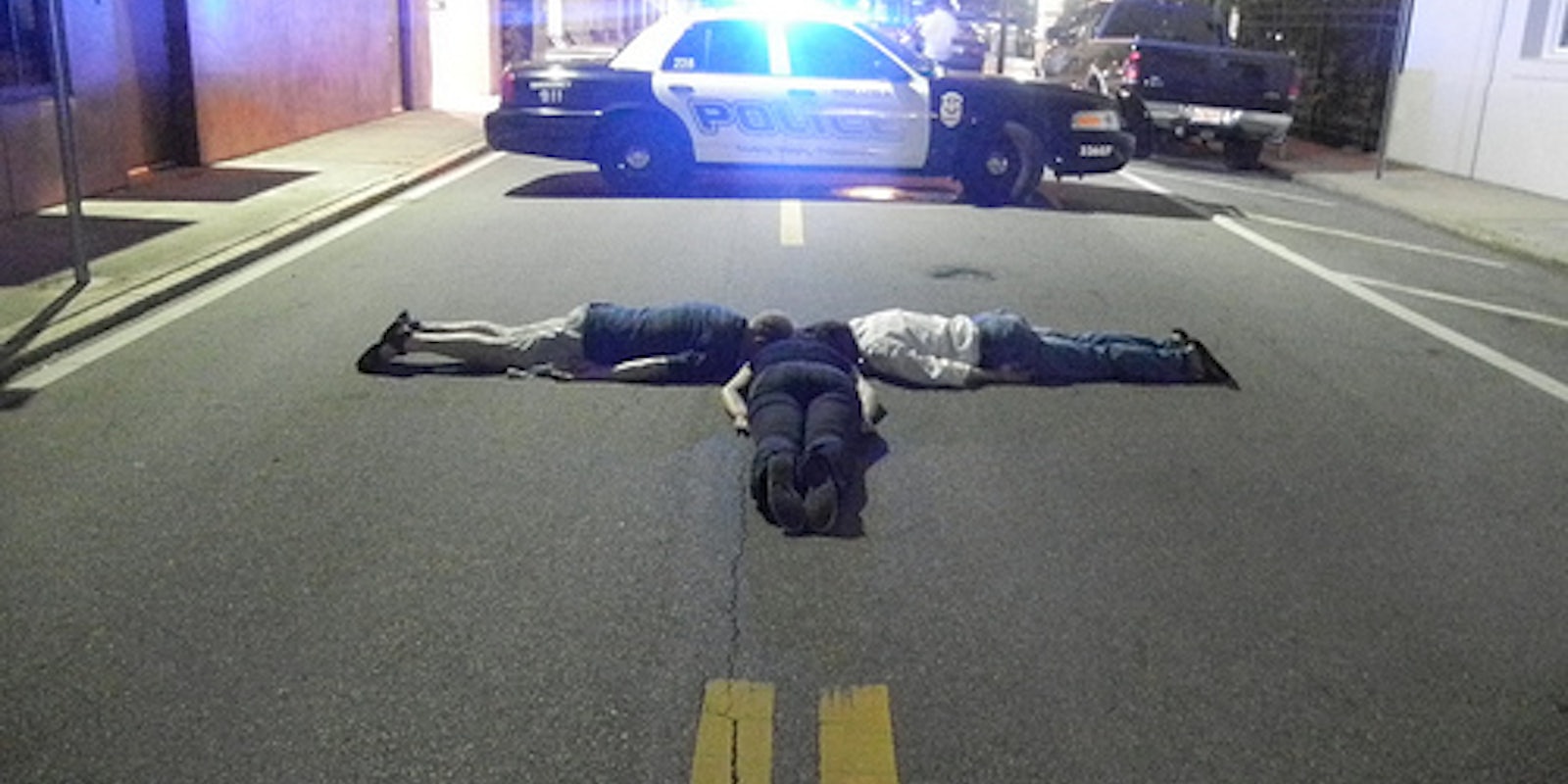It’s difficult to legislate the Internet. But when an online phenomenon became an offline nuisance, a lawmaker in the Philippines wasted no time proposing an act against it.
The phenomenon in question is planking (the act of stiffly lying somewhere and posting a photo of the act online) and the Anti-Planking Act of 2011 is purporting to outlaw it. Quezon representative Winston “Winnie” Castelo proposed the act following a nation-wide transportation strike.
During this strike, a small group of protesters were planking on a major Manila street, the Philippine Daily Inquirer reported.
Castelo said this episode of planking was dangerous.
“Unbelieving bus drivers and law enforcement authorities might just ram through these warm and living bodies rolled out on highways,” he said in a statement.
The Manila District Police confirmed Costelo has their support. They plan to break up any new planking sessions they encounter, especially if they pose a danger to others.
However, the platform that first popularized planking, Twitter, does not support the bill, by a longshot. Anti-Planking Act of 2011 has been a worldwide trending topic since Tuesday evening, as thousands of users continue to tweet their displeasure with the bill.
Most of the critics were not planking sympathizers. Instead, users were upset that government time was being dedicated to something so trivial.
“The Anti-Planking Act of 2011 is even more useless and absurd than the act of planking itself,” wrote @PlanetChuckie. He was retweeted hundreds of times.
“Anti-Planking Act of 2011 and we don’t have laws against illegal squatters and jaywalkers? No wonder our country’s messed up,” wrote Filipino @AceBrilliant.
“Anti-Planking Act of 2011 now trending. Good job, Philippine legislators. Your priorities speak volumes of your capacities,” wrote @stephshai in another popularly retweeted quip.
As of Wednesday morning, the act had been removed from Costelo’s home page. What this means for the act’s future is yet to come.
Photo by PatHayes


